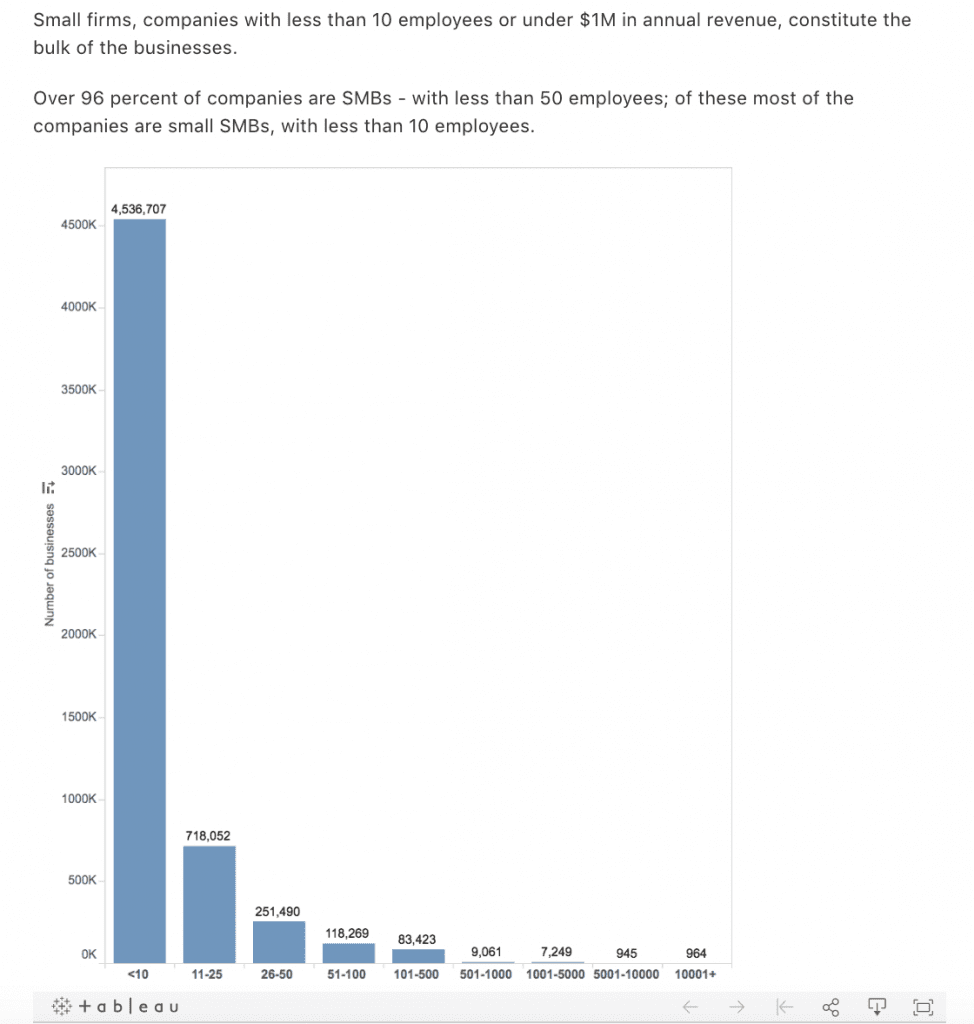
It’s a really tough time for most companies to sell their products and services.
Much buying is “paused.” Buyers are wondering what the future holds for their companies–and themselves–and are having a tough time committing to purchases. Deals are stuck in the pipeline and new opportunities are in short supply.
1. A time to plan
Conversely, this slow time is a great time to plan for the future.
What happens after this crisis is over? What’s your company’s strategy when businesses do start buying again? Now is the time to upgrade your business plan. Now is the time to consider how this crisis could actually be a silver lining for your firm.
One item to seriously consider for your enhanced business plan is how you can add some more enterprise level customers. (I define enterprise accounts as companies with over 1,000 employees, definitions vary).
This does not apply to all companies. Some firms sell products designed only for small businesses but many companies have products or services that can work for bigger companies but they have fallen into the habit of selling to smaller companies.
2. Follow the money
This crisis has highlighted something that has been true since business started: bigger companies are better-placed to ride out a storm than smaller ones. If you look around, you will see smaller companies are the ones doing everything they can just to make payroll. Enterprise companies have cash reserves and can weather this storm by reallocating resources. Smaller ones are disproportionately affected.
The following charts from Compile illustrate why you should put considerable effort into selling to enterprise accounts.
The chart shows the disproportionate distribution of revenue, between enterprise and small companies. There are so many small companies making a tiny share of the overall revenue and so few enterprise accounts making so much.


The charts above show that enterprise accounts (companies with over 1,000 employees) have 60% of the revenue, profit and money to invest but make up less than 2% of the companies out there.
It’s the “80/20, Pareto rule” again. 2% of the firms have 60% of the money to spend!
If you don’t sell to the enterprise market, it’s very likely your competitors will.
When one of your competitors succeeds in getting business in the market that has 60% of the cash to spend in your type of solutions, what will that do for their business and yours? They will have more money coming in than you, and may invest those funds in enhanced product and business development. It’s very likely under those circumstances that they will overtake you in their delivery capabilities and their market penetration.
3. Areas of change
If you are not selling to enterprise accounts today, you will need to make some changes to do so. Change is not easy but it is often necessary. A shock to the system like this crisis is often what it takes for people to make big changes.
Here are some areas in your sales approach that may need to change in order for you and your team to sell to enterprise accounts:
- Training your sales people to sell in a more complex environment, with more decision-makers, and gatekeepers evaluating the details of your product
- Ensuring your sales people are able to hold business conversations in enough detail in the specific areas of need for your target enterprise accounts
- Supporting your sales people with the technical support needed to work with the specialized needs of enterprise accounts, such as system integration and customization.
- Adapting your products/services to the specialized needs of large accounts.
- Adapting your sales collateral/marketing pieces to the specialized needs of large accounts.
- Managing your pipeline to the longer decision-making timelines of large accounts.
- Adapting sales compensation plans to the realities of selling to large accounts
This is an extremely challenging time for many businesses but it can also be a great time to raise your game.
Selling to enterprise accounts is one strategy you can employ to come out of this crisis stronger than you went in.
Update: If you are interested in an alternative to cold calling/prospecting to generate leads in enterprise accounts, check out my free e-course here.